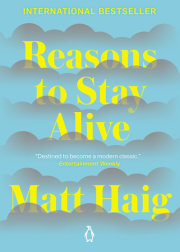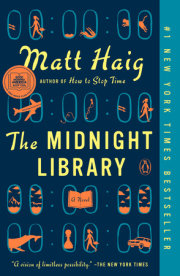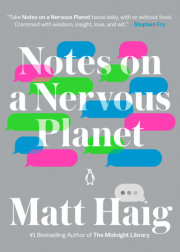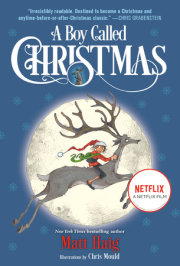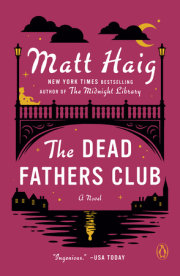This book is impossible
Thirteen years ago I knew this couldn’t happen. I was going to die, you see. Or go mad.
There was no way I would still be here. Sometimes I doubted I would even make the next ten minutes. And the idea that I would be well enough and confident enough to write about it in this way would have been just far too much to believe.
One of the key symptoms of depression is to see no hope. No future. Far from the tunnel having light at the end of it, it seems like it is blocked at both ends, and you are inside it. So if I could have only known the future, that there would be one far brighter than anything I’d experienced, then one end of that tunnel would have been blown to pieces, and I could have faced the light. So the fact that this book exists is proof that depression lies. Depression makes you think things that are wrong.
But depression itself isn’t a lie. It is the most real thing I’ve ever experienced. Of course, it is invisible.
To other people, it sometimes seems like nothing at all. You are walking around with your head on fire and no one can see the flames. And so—as depression is largely unseen and mysterious—it is easy for stigma to survive. Stigma is partic-ularly cruel for depressives, because stigma affects thoughts and depression is a disease of thoughts.
When you are depressed you feel alone, and that no one is going through quite what you are going through. You are so scared of appearing in any way mad you internalize every-thing, and you are so scared that people will alienate you further you clam up and don’t speak about it, which is a shame, as speaking about it helps. Words—spoken or written—are what connect us to the world, and so speaking about it to people, and writing about this stuff, helps connect us to each other, and to our true selves.
I know, I know, we are humans. We are a clandestine species. Unlike other animals we wear clothes and do our procreating behind closed doors. And we are ashamed when things go wrong with us. But we’ll grow out of this, and the way we’ll do it is by speaking about it. And maybe even through reading and writing about it.
I believe that. Because it was, in part, through reading and writing that I found a kind of salvation from the dark. Ever since I realized that depression lied about the future I have wanted to write a book about my experience, to tackle depression and anxiety head-on. So this book seeks to do two things. To lessen that stigma, and—the possibly more quixotic ambition—to try and actually convince people that the bottom of the valley never provides the clearest view. I wrote this because the oldest clichés remain the truest. Time heals. The tunnel does have light at the end of it, even if we aren’t able to see it. And there’s a two-for-one offer on clouds and silver linings. Words, just sometimes, can set you free.
A note, before we get fully underway
Minds ar e unique. They go wrong in unique ways. My mind went wrong in a slightly different way to how other minds go wrong. Our experience overlaps with other people’s, but it is never exactly the same experience. Um -brella labels like “depression” (and “anxiety” and “panic disorder” and “OCD”) are useful, but only if we appreciate that people do not all have the same precise experience of such things.
Depression looks different to everyone. Pain is felt in different ways, to different degrees, and provokes different responses. That said, if books had to replicate our exact experience of the world to be useful, the only books worth reading would be written by ourselves.
There is no right or wrong way to have depression, or to have a panic attack, or to feel suicidal. These things just
are. Misery, like yoga, is not a competitive sport.But I have found over the years that by reading about other people who have suffered, survived, and overcome despair, I have felt comforted. It has given me hope. I hope this book can do the same.
1
Falling
But in the end one needs more courage to live than to kill himself.—Albert Camus, A Happy Death
The day I died
i can remember the day the old me died.
It started with a thought. Something was going wrong. That was the start. Before I realized what it was. And then, a second or so later, there was a strange sensation inside my head. Some biological activity in the rear of my skull, not far above my neck. The cerebellum. A pulsing or intense flickering, as though a butterfly was trapped inside, combined with a tingling sensation. I did not yet know of the strange physical effects depression and anxiety would create. I just thought I was about to die. And then my heart started to go. And then I started to go. I sank, fast, falling into a new claustrophobic and suffocating reality. And it would be way over a year before I would feel anything like even half-normal again.
Up until that point I’d had no real understanding or awareness of depression, except that I knew my mum had suffered from it for a little while after I was born, and that my great-grandmother on my father’s side had ended up committing suicide. So I suppose there had been a family history, but it hadn’t been a history I’d thought about much.
Anyway, I was twenty-four years old. I was living in Spain—in one of the more sedate and beautiful corners of the island of Ibiza. It was September. Within a fortnight, I would have to return to London, and reality. After six years of student life and summer jobs. I had put off being an adult for as long as I could, and it had loomed like a cloud. A cloud that was now breaking and raining down on me.
The weirdest thing about a mind is that you can have the most intense things going on in there but no one else can see them. The world shrugs. Your pupils might dilate. You may sound incoherent. Your skin might shine with sweat. And there was no way anyone seeing me in that villa could have known what I was feeling, no way they could have appreciated the strange hell I was living through, or why death seemed such a phenomenally good idea.
I stayed in bed for three days. But I didn’t sleep. My girl-friend Andrea came in with water at regular intervals, or fruit, which I could hardly eat.
The window was open to let fresh air in, but the room was still and hot. I can remember being stunned that I was still alive. I know that sounds melodramatic, but depression and panic only give you melodramatic thoughts to play with. Anyway, there was no relief. I wanted to be dead. No. That’s not quite right. I didn’t want to be dead. I just didn’t want to be alive. Death was something that scared me. And death only happens to people who have been living. There were infinitely more people who had never been alive. I wanted to be one of those people. That old classic wish. To never have been born. To have been one of the three hundred million sperm that hadn’t made it.
(What a gift it was to be normal! We’re all walking on these unseen tightropes when really we could slip at any second and come face to face with all the existential horrors that only lie dormant in our minds.)
There was nothing much in this room. There was a bed with a white patternless duvet, and there were white walls. There might have been a picture on the wall but I don’t think so. I certainly can’t remember one. There was a book by the bed. I picked it up once and put it back down. I couldn’t focus for as much as a second. There was no way I could express fully this experience in words, because it was beyond words. Literally, I couldn’t speak about it prop-erly. Words seemed trivial next to this pain.
I remembered worrying about my younger sister, Phoebe. She was in Australia. I worried that she, my closest genetic match, would feel like this. I wanted to speak to her but knew I couldn’t. When we were little, at home in Nottinghamshire, we had developed a bedtime communication system of knocking on the wall between our rooms. I now knocked on the mattress, imagining she could hear me all the way through the world.
Knock. Knock. Knock.
I didn’t have terms like “depression” or “panic disorder” in my head. In my laughable naivete I did not really think that what I was experiencing was something that other people had ever felt. Because it was so alien to me I thought it had to be alien to the species.
“Andrea, I’m scared.”
“It’s okay. It’s going to be okay. It’s going to be okay.”
“What’s happening to me?”
“I don’t know. But it’s going to be okay.”
“I don’t understand how this can be happening.”
On the third day, I left the room and I left the villa, and I went outside to kill myself.
Copyright © 2016 by Matt Haig. All rights reserved. No part of this excerpt may be reproduced or reprinted without permission in writing from the publisher.


